Nowhere to run, nowhere to hide: War and geopolitics conspire against Afghan refugees fleeing to Turkey
The governments of Turkey, Greece and Iran are all collaborating to prevent Afghan refugees from reaching their cities, writes Borzou Daragahi in Van, Turkey

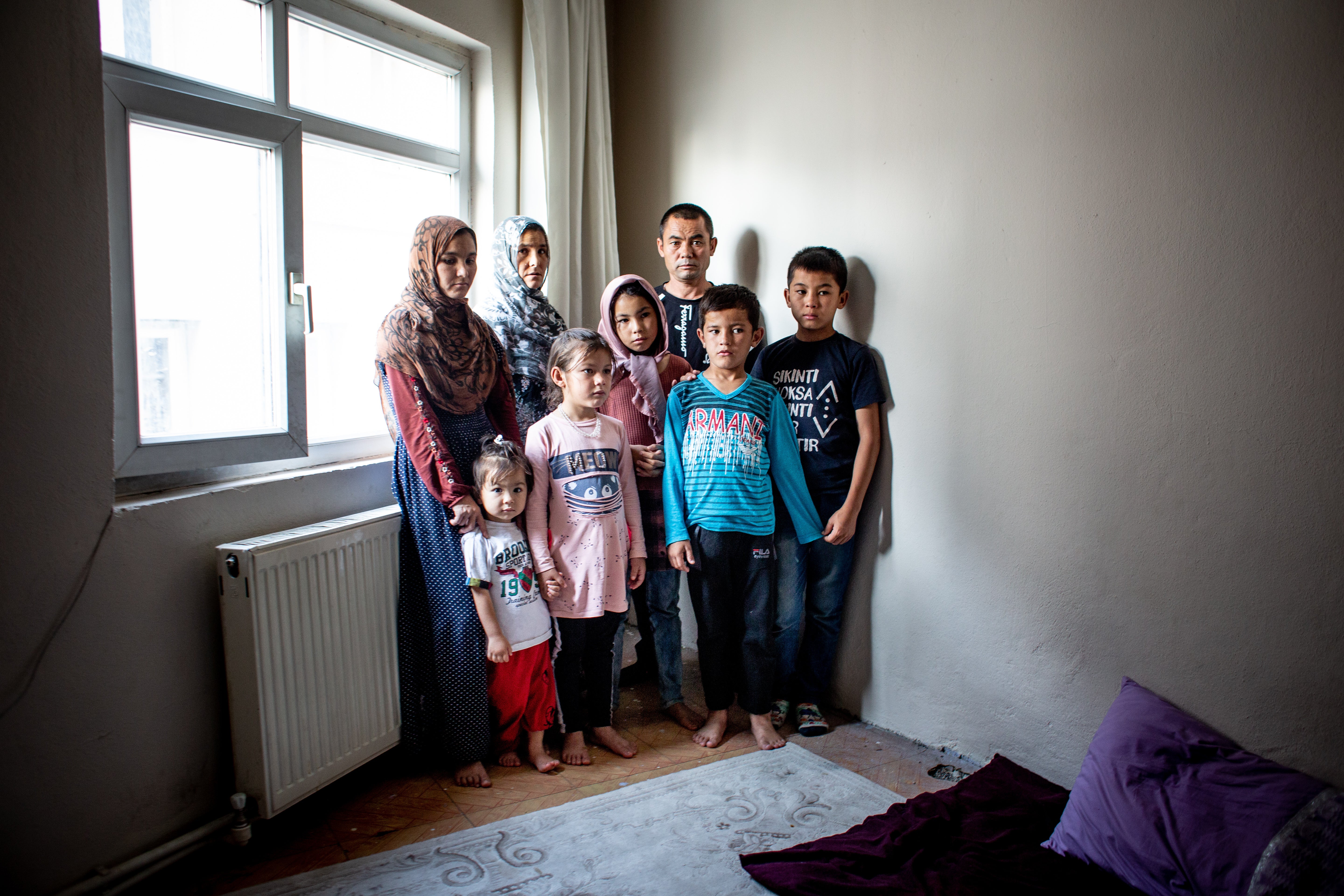
Abdul Kareem Buri and his family climbed mountains, crossed deserts, braved bandits and snuck past the itchy fingers of armed border guards from several nations to make their way from their war-stricken village in the northernmost reaches of Afghanistan to this lakeside town in Turkey.
But now, having made it from his Taliban-controlled village in northern Afghanistan to relative safety, he and his family find themselves trapped, short of financial resources, and living in the shadows in this eastern Turkish city near the Iranian border.
“It was very difficult, and when we arrived we spent three days living on the streets,” he says. “But we can never go back home.”
A world exasperated by refugees and the fallout of humanitarian crises is coldly brushing off Afghans fleeing war, political repression and grinding poverty in their country. The governments of Iran, Turkey and Greece – the countries Afghan migrants have several decades traversed to get to Europe – are openly collaborating to prevent Afghans from reaching their cities.
We have sufficiently carried out our moral and humanitarian responsibilities regarding migration
Austria’s foreign interior minister Karl Nehammer has said he wants to keep Afghan refugees in their own region while advocating “deportation centres” along Afghanistan’s borders so that those who have been denied asylum can be shipped abroad. French President Emmanuel Macron has said that “Europe alone cannot shoulder the consequences” of the Afghan crisis and must protect itself from irregular migrations.
Afghans fleeing their nation have received a similarly icy response from Turkey, which already hosts the world’s largest refugee population. At least 300,000 Afghans live in Turkey, along with more than 3 million Syrian refugees.. The nation is building a three-meter high concrete barrier along its Iranian border to prevent border crossings.
“We have sufficiently carried out our moral and humanitarian responsibilities regarding migration,” Turkish Foreign Minister Mevlut Cavusoglu said Sunday after talks with his German counterpart, Heiko Maas. “It is out of the question for us to take an additional refugee burden.”
On Tuesday, European officials huddled in panic over the prospect of a fresh wave of refugees coming to their borders via Turkey. Greece is erecting a metal wall, unfurling barbed wire and deploying drones and cameras to prevent Afghans from crossing its border.
While some Afghans may be escaping economic deprivation, others have legitimate asylum claims. A member of Afghanistan’s Uzbek minority, Buri had reason to fear the Taliban. His relatives had spoken against the group and many had served in the Afghan National Army. In areas under Taliban control, “everything is lifeless”, he says. A local teacher and her husband tried to attend work but were prevented, the man taken away and tortured. He struggled to make enough money as a farm labourer to eke out a living for his family and that of his brother, who was killed several months ago.
But the last straw came some months ago when a stray mortar struck their home during one of the many clashes between the Taliban and Afghan forces over control of their village. Two of his late brothers’ children were killed and his son lost his left arm.

Buri’s wife, their several children and his slain brother’s pregnant wife and her children began the perilous journey from Afghanistan to Turkey, crossing Pakistan and Iran. “It was really a horrible journey,” says Nasrin-gol, Buri’s sister-in-law. “We didn’t know where we were half the time. I fell several times. But I didn’t really want to stay in Afghanistan. I want a better life for my children and to educate my daughters.”
Many don’t survive the journey. A cemetery in Van contains the graves of scores of people whose bodies were found in the Taurus Mountains along the Iran-Turkey border. Handwritten grave markers designate their location and the date they were found. Many drowned trying to cross Lake Van, a 74-mile body of water that lies to the west of the city.
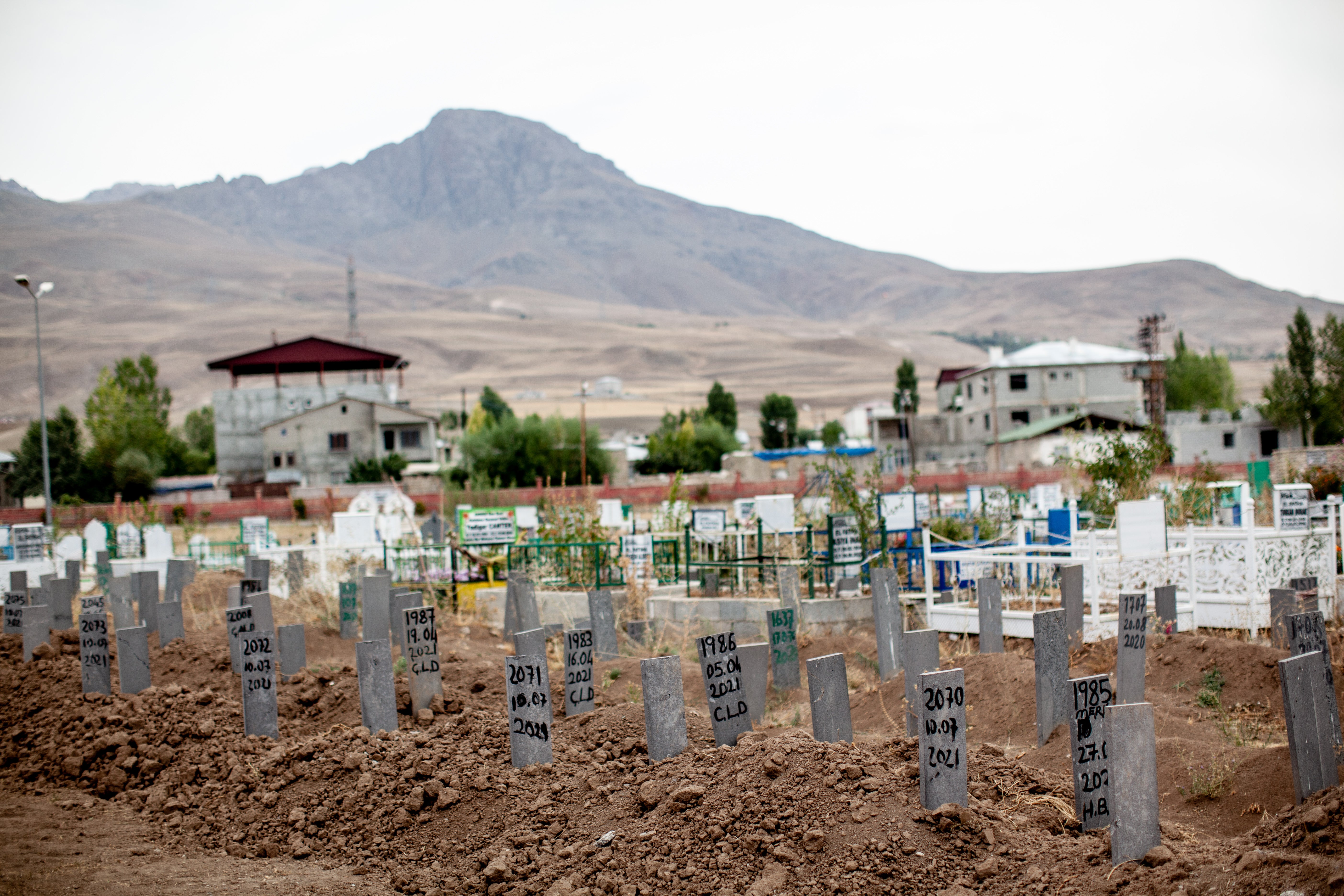
“It’s a very sad situation,” says Mahmut Kacan, a Van-based attorney who handles immigration and human rights cases. “Some die by freezing. Some die by wild animal attacks. Many people die of traffic accidents because the smugglers stuff them into cars.”
The Turkish government is at pains to show a public fed up with immigrants from Syria and Afghanistan that it is stepping up efforts to prevent them from entering the country. Along the border, Turkish soldiers and gendarmerie have increased patrols and sped up efforts to build the concrete barrier.
Authorities recently took a group of journalists on an extensive tour of the deportation facility in Van, showing the hair salons, children’s play areas and even classrooms they offer unauthorised migrants held in detention before they are shipped back to their countries.
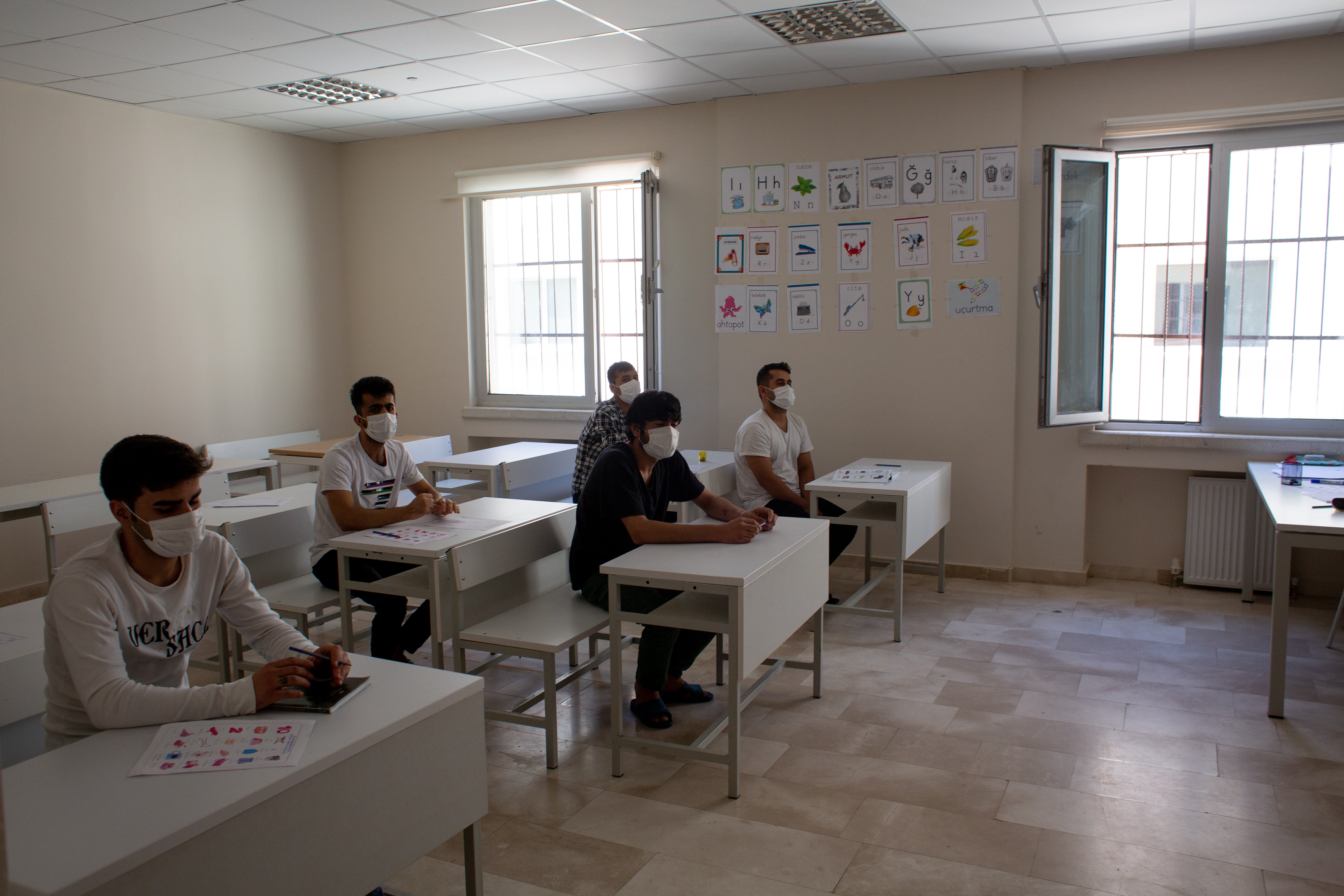
For now Turkish officials concede they are not able to fly people back to Afghanistan, with flights to the country suspended. They are anticipating bigger numbers of arrivals in the coming days. “We haven’t seen the wave yet from the fall of Kabul,” Cuma Omurca, director of immigration in Van Province. “The people you see now are those who could foresee what was going to happen.”
Buri and his family number 11 people. They live crammed in an apartment then rent for £61 a month in Van’s bustling city centre. On the day journalists visited, the youngest, aged 18 months, was suffering from a fever.
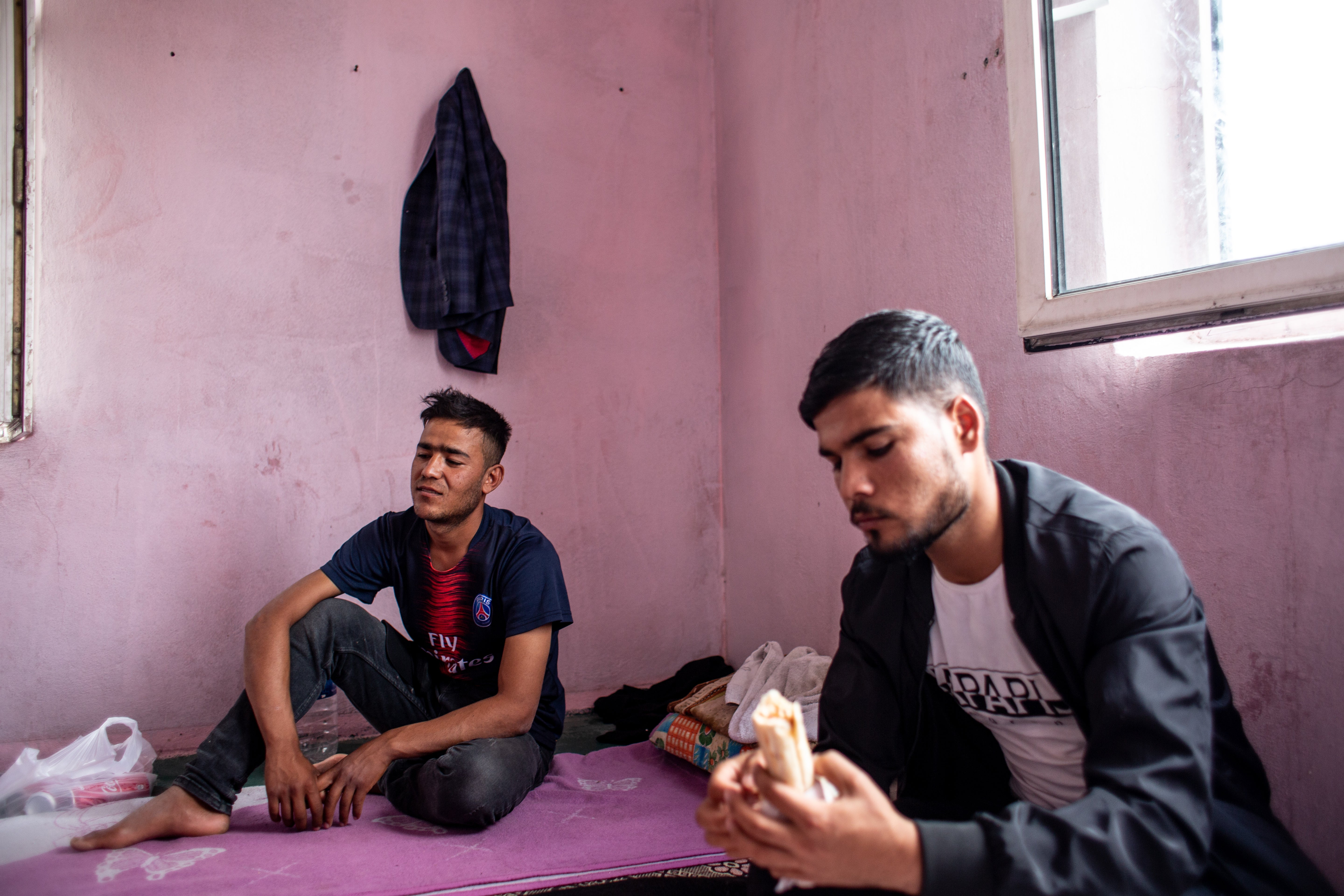
They are luckier than most Afghan refugees in Turkey. As members of Afghanistan’s ethnic Uzbek community their values are more in tune with Turkey and Central Asia and they speak a Turkic language – Abdul Kareem has even managed to find a job paying about £4.39 a day as a dishwasher and short-order cook at a local restaurant.
Most who make it across the border find themselves on the run, living in hiding. After handing all of his money to an unscrupulous smuggler who abandoned him, Dost-Mohammad, 21, from the city of Baghlan, had settled down in an abandoned house in Van that was slated for demolition.
“We just walk around and hide, and when we see the police we run,” he says.
Abdul Jalil Hazargol, a 30-year-old Kabul resident, says he fled the Afghan capital in early August as the Taliban encircled the city. He had worked for international forces at Bagram Airbase several years and was terrified the Taliban would find his employment record.
The borders are dangerous. The mountains are high. There is no food
He joined other migrants from Afghan districts near Jalalabad, Mazar-i-Sharif and Kandahar. They traversed the mountains, made their way through Pakistan, across Iran and climbed across the wall erected by Turkey, paying smugglers along the way.
On a recent day last month, he and a group of 10 other Afghans were sneaking across farmlands, drinking water from streams. He hopes to make his way to Istanbul and find work.
“If I had one piece of advice for other Afghans it is don’t come, because there are many dangers,” he says. “The borders are dangerous. The mountains are high. There is no food.”
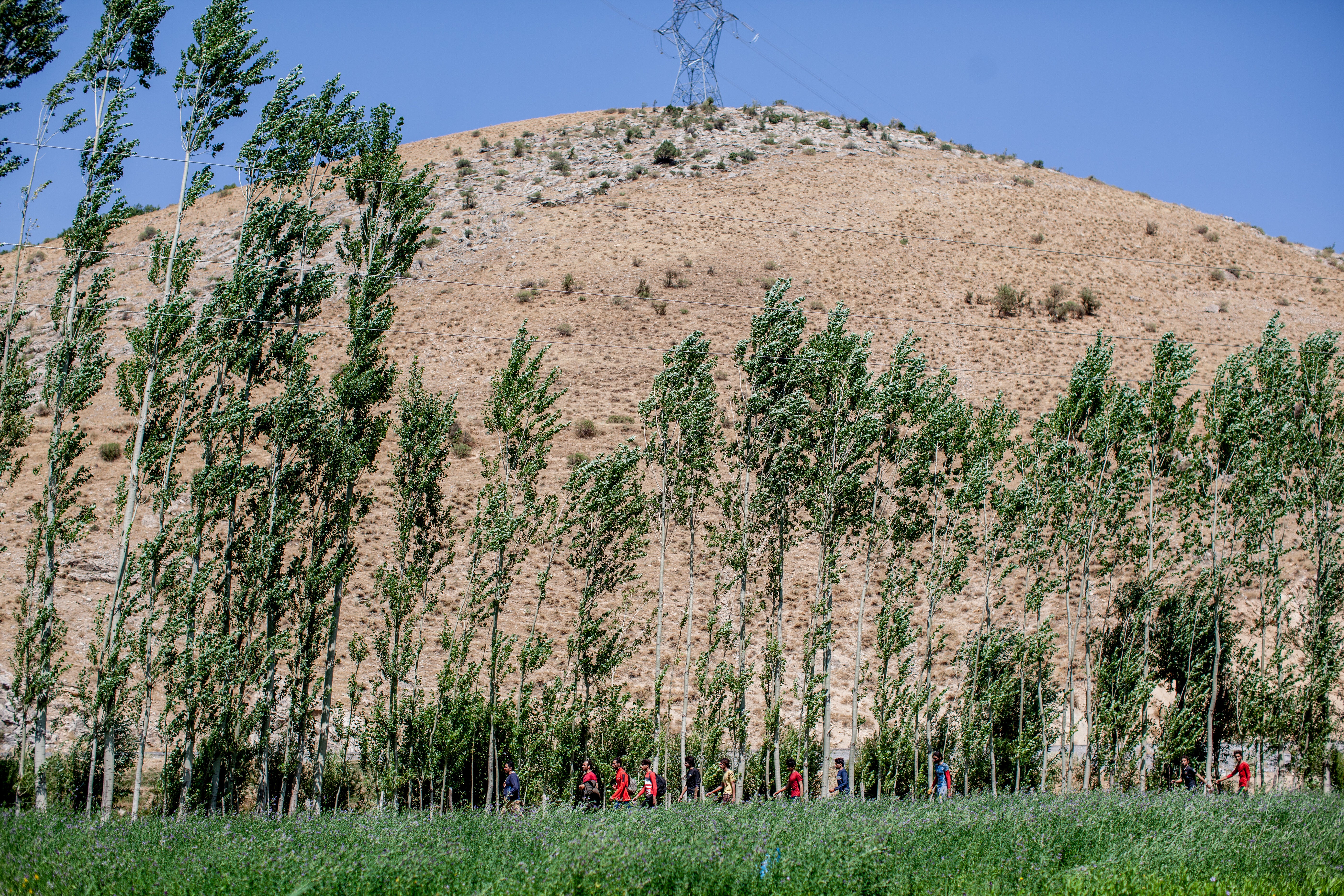
The Turkish government has threatened to prosecute anyone who transports unauthorised migrants on human trafficking, but that doesn’t prevent Turks from helping them. During a trek through farmlands, Hazargol and his fellow travellers happened upon Mehmet Demirkol, a 40-year-old resident of a village outside Tatvan, on western edge of Lake Van.
“I’m a human being with feelings first and foremost,” says Demirkol, a member of Turkey’s embattled Kurdish minority. “They are hungry people fleeing from war. Both intellectually and belief wise, we know they need help. We’re humans. We understand what hungry people go through. We’ve been there.”
Sign The Independent’s petition urging the UK to take in more refugees from Afghanistan here.
Join our commenting forum
Join thought-provoking conversations, follow other Independent readers and see their replies
Comments
Bookmark popover
Removed from bookmarks